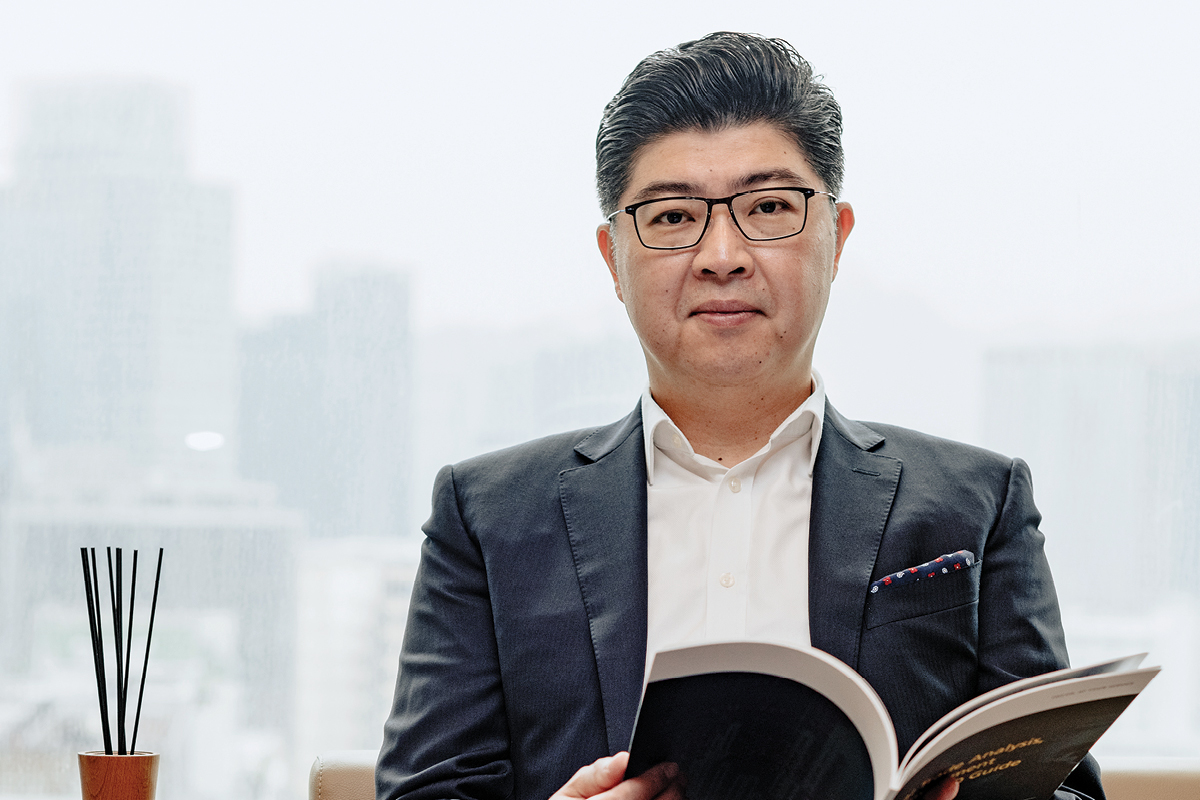Having worked in banking, wealth management insurance, and now the professional services industry, Tricor Group CEO Lennard Yong has recognised that company culture starts with the board and the CEO. “Given that we’re a global multinational company, we’re trying to encapsulate the best parts of us,” he says.

“When we think about culture and working as a team, we have to take our work very seriously. We monitor and we track, and then decide what we deliver to our stakeholders.”
The culture starts as a client-centric organisation, where there is a direct correlation between customer satisfaction and its bottom line. “Our client retention rates are at a 95% average across our books,” Lennard beams.
“We have a high net promoter score, and that leads to a lot of recurring work, recommended by our clients.” To keep clients satisfied and take its service to the next level, Tricor has been working on internal business operations.
“For 15 years, we’ve been building the administration side, but have placed less focus on our commercial side and staff,” Lennard explains.
“In the past two years, we have invested the most money into building up our internal business platform. I believe this is one of the main contributions to our success. It has enabled us to be efficient so that we can serve more of our client needs.”
Recently, the COVID-19 pandemic has resulted in systemic shutdowns of countries and meant that businesses need assistance from Tricor more than ever. The company has had to put aside its rule book and define what it needs to do based on the circumstances today.
“COVID-19 has dampened corporate sentiment but, more importantly, it’s also demonstrated that many corporations weren’t ready for this sudden shift,” Lennard says.
“We found that by moving ahead much earlier in the curve, we could shift much of our time and effort in helping our clients. This was a direct response to the unprecedented collapse in the supply chain and demand shock to the global economy.
“For example, we concluded a timely research survey in mid-February, which summarised COVID-19 business sentiment. As a result, by mid-Q1 we were able to tailor and launch pragmatic solutions for clients such as helping them with their cashflow management and defining alternatives for their business operations.”
A digital future
The company is evolving from a people- and paper-based organisation to an increasingly digital platform, and Lennard expects the office to move into flexible working environments.
“In April last year, we put in place our online shared service centre in Malaysia, and introduced robotics automation into our business,” he reflects.
“We now have more than 200 bots assisting our staff by doing some of the mundane tasks such as repetitive journal entry and reconciliation.
“Companies are changing the way they think about how businesses should operate, and I believe that working from home will take place in the general economy, where corporations will move from service training in the office to a digital platform.”
Lennard believes that if you have the right vision, it will be one that you will take your organisation on for a decade. The geographical span of Tricor has remained strategically in Asia, and the company believes that is where its strength lies.
“What’s evolved – other than financial improvement – is our matured strategy to be an Asian company,” Lennard explains. “With this, we service about 40% of Fortune 500 companies that operate here, and we have around 50,000 corporate clients.”
Tricor’s vision is to globalise Asia and help corporations set up, grow and build their franchise around the region. “We decided that our business would be Asian-centric because we saw the rate of foreign investment in Asia,” Lennard says.
“The region was the biggest global recipient of foreign direct investment, and we foresaw that Asia would be one of the biggest regions for the global export of foreign investment. In the next 10 years, I see China and Japan exporting capital and then investing in Europe and the US.”
The company strives to be Asia’s leading business expansion company, and to help reach this goal it has specifically invested in “doubling down” its franchise in China.
“We went from being represented in four cities to more than 12 cities, and we’ve almost doubled our number of employees,” Lennard says.
“We help Chinese businesses set up in the Greater Bay Area and across the Belt and Road. We bring them from China to Hong Kong, and then ultimately to different parts of the world.”
A common goal
Throughout his career, Lennard has had the opportunity to work with people from diverse backgrounds. He has worked for organisations that have spanned more than 80 countries and learned to bring people together.
“One of the key things that I’ve learned is to appreciate and understand different cultures; that rather than work against the grain, you go with the grain,” he says.
“As the CEO of a company that is in 21 countries, I am glad to say that my experience has helped me understand how to bring people together towards a common goal and purpose.”



